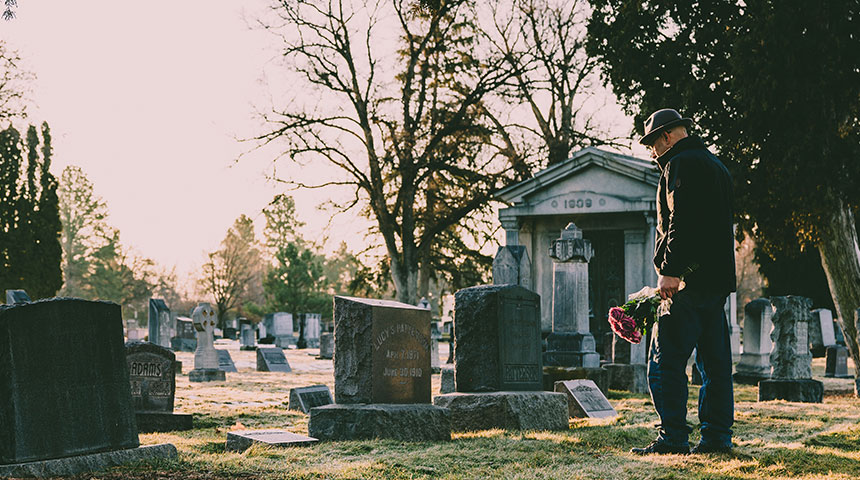The COVID-19 pandemic has not only changed the way we experience life, but has also changed the way we experience loss, and ultimately grief. In normal circumstances, we can attend funerals, religious services, and other gatherings to honour the deceased and receive comfort from friends and family. However, limitations placed on these types of gatherings provide significant obstacles, challenging our traditional methods of managing grief. Whether it is a loved one, friend, acquaintance, patient, or anyone else who passes, these unique times can make dealing with grief more drawn out, and subsequently, more painful.
Ideally, when dealing with grief, people are given the opportunity to grieve together. Even though video and phone calls help people connect, it is still not the same as face-to-face interactions. There is a very human and comforting component missing from the experience. Without being by a loved one’s death bed, for example, it can be incredibly difficult for a person to find closure. This can lead to feelings of “ambiguous loss,” which means that even though someone is physically gone, they still might be emotionally present.
Symptoms of grief might include feelings of sadness, emptiness, anger, difficulty concentrating, forgetfulness, muscle weakness or tension, changes in appetite, difficulty sleeping, fatigue, withdrawal, and questioning the meaning of life. Most people experience some combination of these symptoms during the grieving process, but this can become especially problematic when symptoms are chronic.
The following chart highlights some of the differences between normal grief and complicated grief:
Normal Grief
|
Complicated Grief
|
With all the additional challenges that death and grief during COVID-19 involve, there are ways to work through both normal and complicated grief:
- Recognize that this is difficult. Death and grief can contribute to many feelings. Allow yourself to feel whatever it is that you are feeling, without judgment.
- Focus on what is possible, rather than what is not possible. For example, even though it might not be possible to have a large memorial service right now, try to focus on what you can do. Perhaps you can have friends and family from all over the world watch the memorial service on a video call, which might not have happened before COVID-19.
- Practice self-care. Take care of yourself and do what makes you feel happy. This might include baking, going for a walk, or anything else you find therapeutic. Remember that it is vital to maintain healthy boundaries with others and take time for yourself.
- Write a letter to the deceased. This can be especially helpful if you feel like you did not get to say goodbye. Write down what you might have wanted to share with them before they passed.
- Reach out for support. This might include reaching out to a family member or friend. If you feel that you need further assistance to work through your grief, consider reaching out to a regulated mental health professional, such as a psychologist, psychotherapist, or social worker.
Please remember to be kind and compassionate with yourself. This is a challenging time, and you are likely feeling many emotions. Even though it might be hard to see it on some days, remember that this will pass.
References
- Penn Medicine News. (2020, July 30). How Coronavirus complicates the grieving process.
University of Pennsylvania. https://www.pennmedicine.org/news/news-blog/2020/july/
how-coronavirus-complicates-the-grieving-processdicine.org
- The Centre for Complicated Grief. (2020). Coping with grief during COVID-19: Saying goodbye to
loved ones. International Association of Fire Fighters. https://www.iaff.org/wp-content/
uploads/Grief-During-COVID19-Saying-Goodbye-to-Loved-Ones.pdf
- Photo by Brett Sayles from Pexels

